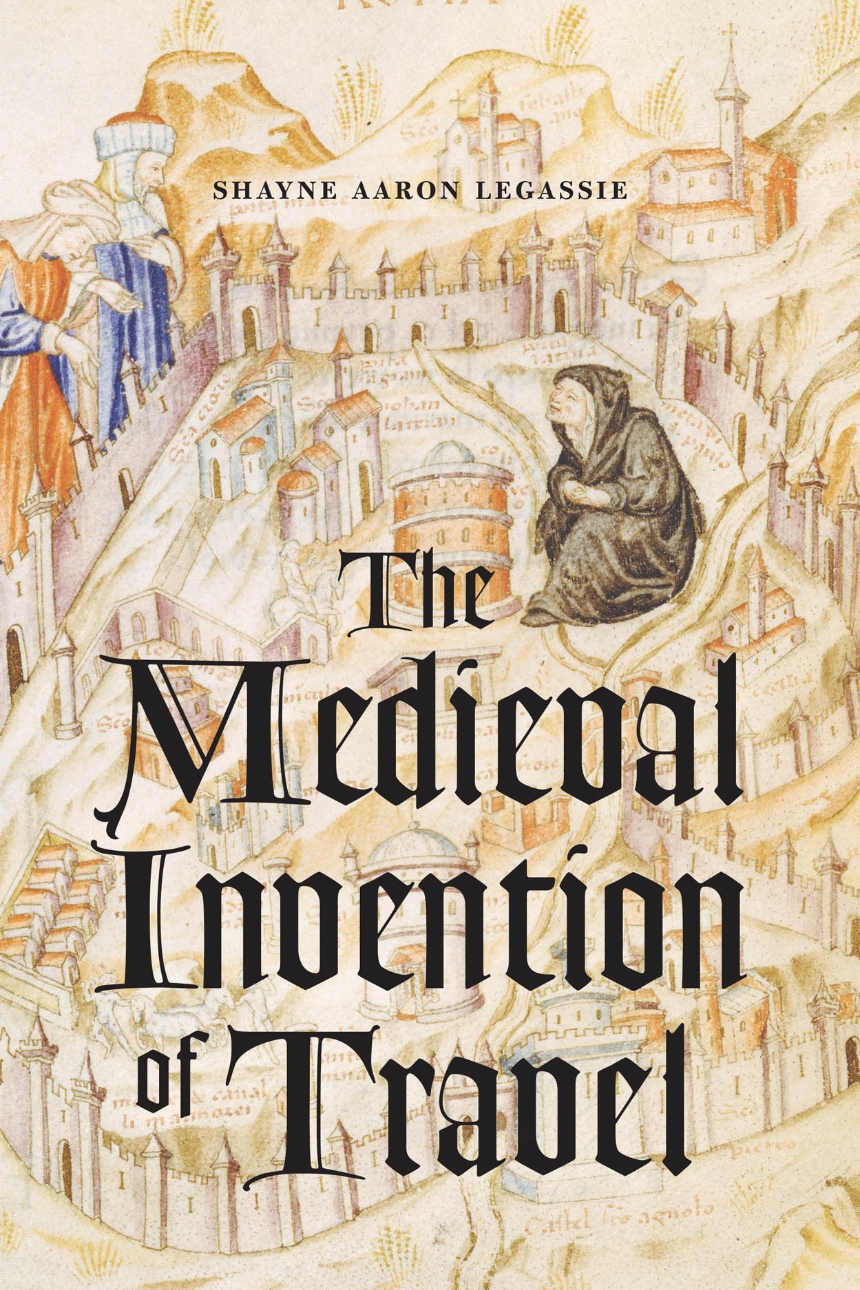The Medieval Invention of Travel
Publication supported by the Bevington Fund
Over the course of the Middle Ages, the economies of Europe, Asia, and northern Africa became more closely integrated, fostering the international and intercontinental journeys of merchants, pilgrims, diplomats, missionaries, and adventurers. During a time in history when travel was often difficult, expensive, and fraught with danger, these wayfarers composed accounts of their experiences in unprecedented numbers and transformed traditional conceptions of human mobility.
Exploring this phenomenon, The Medieval Invention of Travel draws on an impressive array of sources to develop original readings of canonical figures such as Marco Polo, John Mandeville, and Petrarch, as well as a host of lesser-known travel writers. As Shayne Aaron Legassie demonstrates, the Middle Ages inherited a Greco-Roman model of heroic travel, which viewed the ideal journey as a triumph over temptation and bodily travail. Medieval travel writers revolutionized this ancient paradigm by incorporating practices of reading and writing into the ascetic regime of the heroic voyager, fashioning a bold new conception of travel that would endure into modern times. Engaging methods and insights from a range of disciplines, The Medieval Invention of Travel offers a comprehensive account of how medieval travel writers and their audiences reshaped the intellectual and material culture of Europe for centuries to come.
Exploring this phenomenon, The Medieval Invention of Travel draws on an impressive array of sources to develop original readings of canonical figures such as Marco Polo, John Mandeville, and Petrarch, as well as a host of lesser-known travel writers. As Shayne Aaron Legassie demonstrates, the Middle Ages inherited a Greco-Roman model of heroic travel, which viewed the ideal journey as a triumph over temptation and bodily travail. Medieval travel writers revolutionized this ancient paradigm by incorporating practices of reading and writing into the ascetic regime of the heroic voyager, fashioning a bold new conception of travel that would endure into modern times. Engaging methods and insights from a range of disciplines, The Medieval Invention of Travel offers a comprehensive account of how medieval travel writers and their audiences reshaped the intellectual and material culture of Europe for centuries to come.
304 pages | 9 halftones | 6 x 9 | © 2017
Geography: Cultural and Historical Geography
History: European History
Literature and Literary Criticism: Romance Languages
Travel and Tourism: Tourism and History
Reviews
Table of Contents
Preface
Acknowledgments
Introduction: Travail and Travel Writing
Part One: Subjectivity, Authority, and the “Exotic”
1. Exoticism as the Appropriation of Travail
2. Travail and Authority in the Forgotten Age of Discovery
Part Two: Pilgrimage as Literate Labor
3. Memory Work and the Labor of Writing
4. The Pilgrim as Investigator
Part Three: Discovering the Proximate
5. Becoming Petrarch
6. The Chivalric Mediterranean of Pero Tafur
Coda: Beyond 15; or, Travel’s Labors Lost
Abbreviations
Notes
Index
Acknowledgments
Introduction: Travail and Travel Writing
Part One: Subjectivity, Authority, and the “Exotic”
1. Exoticism as the Appropriation of Travail
2. Travail and Authority in the Forgotten Age of Discovery
Part Two: Pilgrimage as Literate Labor
3. Memory Work and the Labor of Writing
4. The Pilgrim as Investigator
Part Three: Discovering the Proximate
5. Becoming Petrarch
6. The Chivalric Mediterranean of Pero Tafur
Coda: Beyond 15; or, Travel’s Labors Lost
Abbreviations
Notes
Index
Awards
Southern Atlantic Modern Language Association: SAMLA Studies Book Award - Monograph
Won
